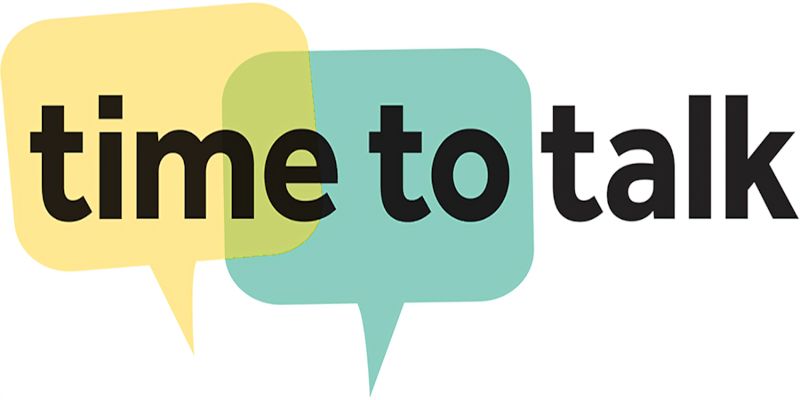Table of Contents
ToggleSpeaking and remaining quiet each have their unique benefits.
In general, staying silent allows us to learn more efficiently while speaking permits us to transfer knowledge to other folks.
But if speaking is silver, then listening is gold. Find out why it is better to remain silent and be thought a fool than to talk and remove all doubt of it.
Why is it better to stay silent at times?
You’ll learn more
One of the biggest reasons why it’s better to stay silent at times is that you’ll learn much more.
You can’t learn new things when you’re speaking. That’s because we’re focused on what we’re saying, and we can only speak about the things we already know. Unless we want to come off as misinformed and ignorant that is.
Remaining silent allows you to practice active listening which will make you seem interested, all the while making you capable of taking in all that new information.
This new understanding can be used in the present, or at a future date for your gain.
People are regularly misinformed
The sad thing is that everyone thinks they’re right these days. Even more, bittersweet is that many think that the truth is subjective. And if that were to be true, then everyone would be right since we can make all decisions based on emotions and subjective feelings.
Luckily, this isn’t right. The truth is objective. And people are often too lazy or afraid to put in the required work to obtain the truth. That’s also precisely why a lot of folks turn toward willful ignorance. To mitigate the pain they’re experiencing.
Being informed isn’t as easy as it seems, since it involves being capable of critical thought and introspection.
It’s alright to speak, but try to be knowledgeable instead of communicating with conviction when you’re uninformed about the topic at hand.
Ignorance

Closely related to the previous point. People are regularly unlearned. Now, ignorance isn’t the worst thing in the world, since at least they have the excuse that they “don’t know any better.”
But being willfully ignorant is a different story. Folks that intentionally bury their head in the sand are the worst. Because it shows that they’re not courageous, afraid, and unwilling to work hard to confront the harsh truth.
I’m not saying that it’s not hard, because it is. I would even add that it’s often painful. But is it virtuous to avoid suffering at all costs? Or is voluntarily confronting the pain in the world a showing of moral strength?
If you know that you’re ignorant, then you should attempt to change that. That should be your first step to take. Instead of speaking, listen to others, and do your research to become more understanding.
Helps you to focus
Listening instead of talking means you can focus on the message rather than communicating the information that you want to convey.
Thus, you’ll have more time to concentrate on just listening. That’s because there’s less distraction by various stimuli in the form of noises and visual occurrences.
More productive

We know that you learn more and get more stuff done when things are quiet. Thus, when everything is silent, we can do our best work.
Some stimuli from time to time can help to increase our creativity. Yet, if we want the most work done, then it’s better to concentrate on solely one thing.
Allows for introspection
Introspection means exploring your thoughts in addition to ideas. It means going into your mind to explore your rich inner world, and that’s impossible when we’re busy talking or focusing on what other people are saying.
That’s why speaking is silver, and silence is golden at times. Because knowing yourself is the beginning of all wisdom, and we can’t get to know ourselves when we’re too preoccupied with taking the spotlight.
Calms you down
Stimuli overload is a real thing. When there’s too much going on at one given time because there’s a lot of noise or visual inputs, then it’s very hard to remain calm and concentrate. That’s because these various inputs engage the sympathetic nervous system which prepares our body for activity.
But it’s much easier to calm down our senses when there are fewer visual and auditory stimulants. Thus, staying in a quiet place allows us to engage our parasympathetic nervous system which is responsible for relaxing our body and mind.
More patience
It’s difficult to be patient when you’re being bombarded with stimuli from all around you.
When things are peaceful, it’s the easiest to concentrate on one thing. Naturally, that’ll give you more patience than if you are stressed out. Again, that’s because our sympathetic nervous system is active when we’re calm, and our parasympathetic is engaged when we’re nervous.
At baseline, we want to remain tranquil since being in the “fight” mode is physically and mentally exhausting.
Frequently Asked Questions (FAQ)
What does “better to remain silent and thought a fool” mean?

Sometimes it’s better to remain silent and thought a fool than to speak, and to remove all doubt means that it’s better to stay quiet and potentially thought of as being stupid rather than talking and confirming that you are.
When you don’t talk, then the only thing they have is suspicion. They can’t truly confirm whether it’s true or not due to a lack of evidence.
But when you speak, you show how you think, and who you are internally. It puts all your ignorance and uninformed opinions on full display for the whole world to see.
Who said, “Better to remain silent and be thought a fool than to speak and to remove all doubt?”
The quote, “Better to remain silent and be thought a fool than to speak and to remove all doubt” was first said by Abraham Lincoln.
He was an American politician, lawyer, statesman, and the 16th President of the United States from 1861 until he was murdered in 1865. He was on March 4, 1861.
Why is it better to talk?
To communicate
It’s hard to communicate with others when we’re not speaking. However, don’t underestimate the power of our body language, as a lot of information is conveyed through the way we carry ourselves rather than with our words.
Talking with those around us allows us to share information, and to prevent misunderstandings because we can clarify ourselves. All of this together helps to prevent assumptions from being made.
To share ideas and thoughts
It’s hard to learn new things when we can’t share new ideas and thoughts.
Language allows us to do just that. To share our thinking so that we can engage in a dynamic learning process rather than remaining static.
We can’t learn anything new or solve issues when everyone thinks the same. We should combine all those different points of view, so we can get as close to the objective truth as possible.
Educating others

Speaking may show our ignorance and how misled we are, but it can also add value to another person’s life. Everyone has something useful to say that can improve the lives of others, we just have to be willing to listen and accept it. Regardless if it’s coming from someone we like or not.
Just because you don’t like what you’re hearing doesn’t automatically mean they’re wrong either. It might be hurtful to your ego which can make you disregard all that info as being useless and wrong.
Creates a connection
Conversing with others creates a relationship since we can relate to one another due to understanding each other better.
Life isn’t worth much when we have no one to share it with. One of the beauties of life is being able to partake in wonderful moments together with our close friends and family members.
Helps us grow

One of the benefits of conversation is that it helps us grow as individuals since we can share thoughts and ideas.
This fresh information can transform us into someone new since we get another perspective on life. Thus, we need different points of view from those around us to improve and find the truth.
People are going to judge you regardless
People are going to judge you anyway, whether you speak or don’t. There will always be something they don’t like about you that they’ll critique. It might be valid, or it might not be, but you’re going to be evaluated.
Thus, remaining silent is not always the best option. If you have something that needs to be said, then you should do so. Even at the risk of being thought a fool.
Nevertheless, you should only talk when you have something valuable to say. And that means you need to be well-informed instead of ignorant.
Speaking is required to ask questions

You need to ask questions to clarify and understand things better. Especially since the person who’s busy explaining has probably gone over that knowledge multiple times in their mind. This can make that information “obvious” to them.
However, just because they know that subject very well doesn’t mean that we do too. We may hear about it for the very first time, which probably means we have to ask for clarifications in multiple instances.
That’s why speaking isn’t always bad. It’s an extremely useful tool to learn new things and to communicate information to one another when used properly.
Conclusion

Sometimes it’s better to be silent, and sometimes it’s more beneficial to speak. It depends on the situation and how knowledgeable you are regarding the subject.
If your main goal is to learn, then it’s better to remain quiet. If you want to share your knowledge about something, then it’s easier to do so by speaking.
When you have something important to say, then you need to speak up. But if you know you’re not as knowledgeable on a subject as you should be, then you should refrain from talking and listen instead.


